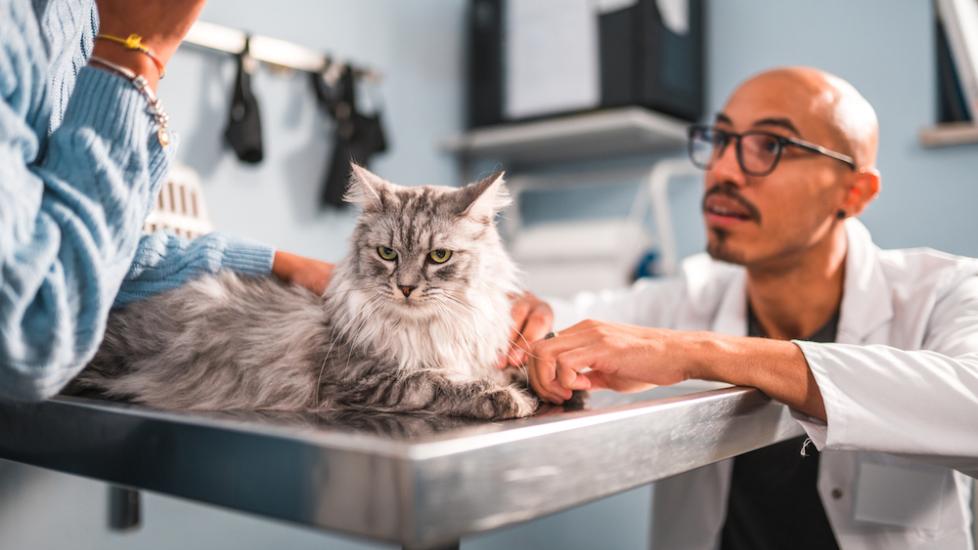 The Silent Killer: Understanding Feline Hypertrophic Cardiomyopathy (HCM)
The Silent Killer: Understanding Feline Hypertrophic Cardiomyopathy (HCM)
In the world of feline health, few conditions are as insidious and potentially life-threatening as hypertrophic cardiomyopathy (HCM). This condition, characterized by a thickening of the heart muscle, often goes undetected until it is well advanced, making early detection critical for cat owners. In this article, we delve into the intricacies of HCM, its symptoms, diagnosis, treatment options, and preventive measures that can be taken to ensure your beloved feline friend leads a long and healthy life.
What Is Feline Hypertrophic Cardiomyopathy?
Hypertrophic cardiomyopathy is the most common form of heart disease diagnosed in cats, affecting both pedigree breeds such as Maine Coons and domestic shorthairs alike. The condition occurs when the walls of one or more chambers of the heart become abnormally thickened, which reduces the efficiency of blood flow through the organ. This can ultimately lead to congestive heart failure, stroke, or other serious complications if left untreated.
Symptoms of Feline HCM
One of the most challenging aspects of HCM is that many affected cats show no outward signs of illness. However, some may exhibit subtle changes in behavior or activity level that astute pet parents might notice. These include:
- Lethargy: Your once energetic kitty may suddenly seem less interested in playtime or climbing up to her favorite perch.
- Loss of Appetite: A decrease in appetite or sudden weight loss could indicate underlying cardiac issues.
- Coughing or Panting: Breathing difficulties can occur due to fluid buildup around the lungs caused by HCM.
- Weakness or Collapse: Severe cases may present with weakness or even collapse due to inadequate circulation.
- Vomiting or Diarrhea: Some cats experience gastrointestinal upset related to decreased blood supply to their digestive system.
How Is HCM Diagnosed?
Early detection of HCM is crucial. Veterinarians use various diagnostic tools to identify the condition before clinical signs appear:
- Physical Examination: Your vet will listen for abnormal heart sounds during an exam.
- Electrocardiogram (ECG): This test records the electrical activity of the heart, which can reveal arrhythmias associated with HCM.
- Echocardiography: An ultrasound of the heart provides detailed images of the internal structures and allows veterinarians to measure wall thickness directly.
- Blood Tests: While not always specific for HCM, certain blood tests can help assess how well the kidneys and liver are functioning under the stress of poor cardiac performance.
Treatment Options for Feline HCM
Once HCM has been confirmed, there are several treatments available to manage the condition:
- Medications: Beta blockers and calcium channel blockers can help control heart rate and reduce the force of contractions, thereby alleviating some of the strain on the heart. Additionally, diuretics may be used to treat fluid retention.
- Diet Modification: Certain diets can support heart health by maintaining ideal body weight and reducing salt intake.
- Supplements: Nutritional supplements like L-carnitine and taurine have shown promise in supporting cardiovascular function.
- Lifestyle Changes: Regular exercise within limits can improve overall fitness without overtaxing the heart.
Preventing Feline HCM
While hereditary factors cannot be changed, steps can be taken to minimize the risk of developing HCM:
- Regular Checkups: Schedule routine veterinary visits to monitor your cat’s health and detect any changes early.
- Genetic Testing: If you plan to breed your cat, consider genetic testing to avoid passing along predisposition genes.
- Maintain Ideal Weight: Overweight cats are at higher risk; regular weigh-ins and adjustments to diet can keep them trim.
- Monitor Dietary Intake: Limit access to high-fat foods that can contribute to obesity and metabolic disorders linked to HCM.
- Manage Stress: Reduce stressors in your cat’s environment to maintain emotional stability, which affects physical health.
By understanding the complexities of feline hypertrophic cardiomyopathy and taking proactive steps towards prevention and early detection, pet owners can provide the best possible care for their cherished companions. It is essential to work closely with a qualified veterinarian who specializes in feline medicine to develop a personalized healthcare plan tailored to your cat’s needs.
